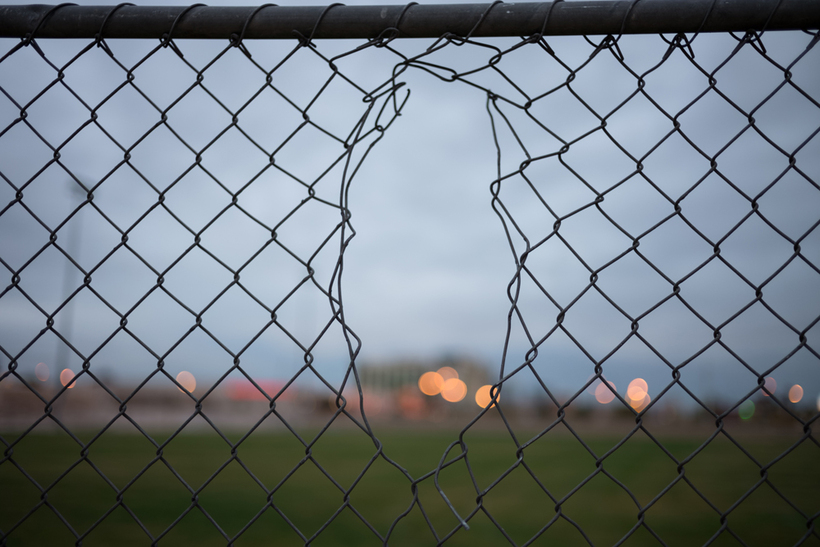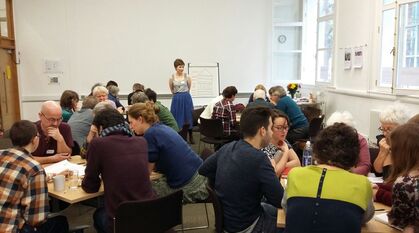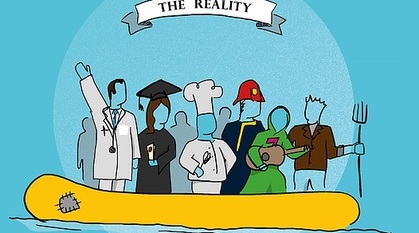Messy change: a way forward on immigration detention?
An amendment to the Immigration Bill shows that the way forwards is rarely smooth. Jessica Metheringham asks whether it's the right option to take.

Sometimes change is like crossing a desert. It is a long, slow journey and a horizon which seems to get further away, not closer. And then suddenly everything shifts.
Or sometimes change is like climbing a mountain. The summit may be visible, but the path to it is unclear. Often it's necessary to go down in order to go up, or to go sideways in order to go forwards. It's not always clear which path will lead to the top.
The Immigration Bill
The Immigration and Social Security Co-Ordination Bill is a good example of change being like climbing a mountain. It's a step along a path, though we can't be sure it leads to our chosen destination.
The bill is currently being debated in parliament, and will provide the legal framework for the UK's future immigration system. Immigration detention is one of four key areas where we as Quakers are campaigning for change in this system. We want to end detention entirely, but are currently working for a time limit of 28 days.
A recently proposed amendment to the bill (which was rejected but is expected to appear again at the next stage of the bill process) would limit immigration detention to 28 days. If an amendment like this becomes part of the bill, then it would be a significant step towards ending immigration detention altogether.
However, it is likely that because the Immigration Bill is part of the process of withdrawing from the EU, a limit of 28 days could only apply to European Economic Area (EEA) and Swiss citizens. This means that EEA/Swiss citizens couldn't be held in immigration detention for longer than 28 days, but that citizens of other countries could. It would create a two-tier system.
Of course, if the bill was passed with that amendment and the courts judged that it did only apply to EEA/Swiss citizens, then there would soon be a legal challenge. I have no doubt that the law would change to limit immigration detention to 28 days for everyone. To labour the mountain metaphor again, it would be like going into a valley in order to climb the high peak on the other side.
Choosing the right path
The question is whether it really is the right path. Would it be better to wait until there is a wider immigration bill and attach the same amendment to that, so that it applies equally to everyone? Or would the moment have been lost? How will those who are not EEA/Swiss citizens feel about this amendment if it does not apply equally to them?
The movement to end immigration detention in the UK, which is part of a wider racial justice movement, has been demanding the shutdown of immigration detention for many years. It is easy to see this change as a failure because we have not yet been able to achieve our full aim.
However, it also shows that we can work together, that we can change things, and that we will continue to mobilise our communities to demand not only a 28-day limit, but also the closure of all detention centres. If anything, small wins can give us the hope and impetus to continue dreaming, and working towards dismantling discrimination wherever we find it.
Sustainable change
The route to change overall is messy too. Quakers' vision is to create sustained action to build peace and social justice; we want to end immigration detention altogether rather than simply limit it to 28 days. Does accepting a limit feel like we are conceding, or is it a necessary step on the way to ending detention?
These aren't easy questions. We want to find the best path to sustainable change, and we want to include everyone. Sometimes it feels as though we are looking for a path without a map.


